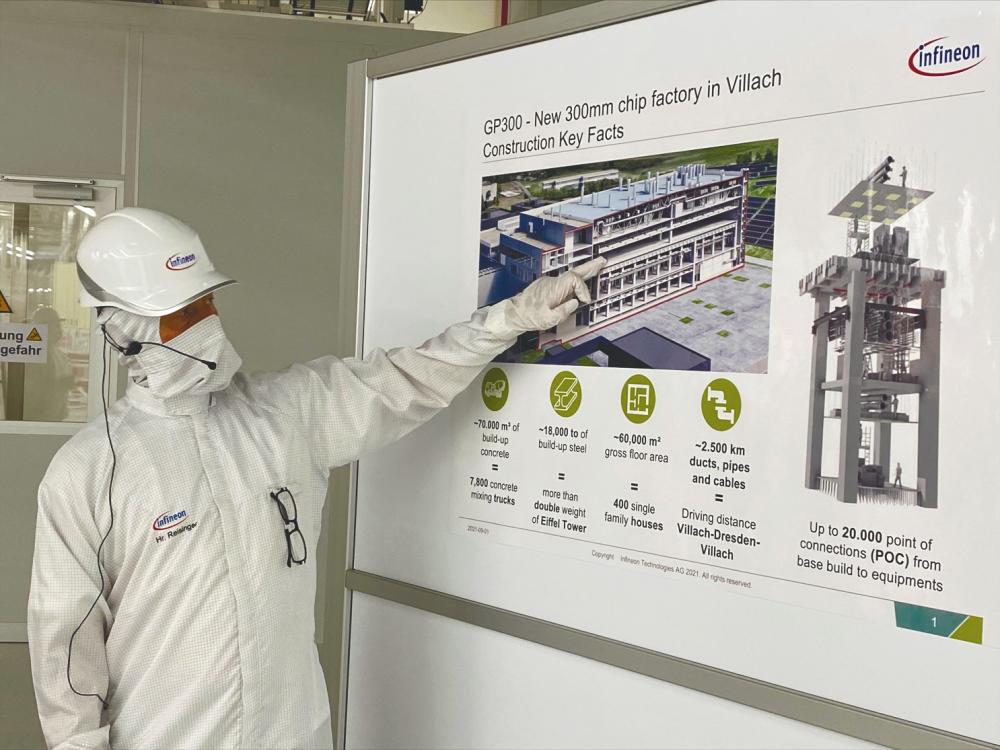PETALING JAYA: The European Union’s (EU) plans to be self-sufficient in semiconductors against the backdrop of a global shortage of the materials comes as no surprise to MIDF Research head Imran Yassin, who believes the development of an EU chipmaking ecosystem will still leave a positive impact on Malaysian players due to the fragmentation in downstream niches of the value chain in the industry.
“For example, outsourced semiconductor assembly and test (OSAT) players typically serving the makers of semiconductors. Moving downstream, these players serve the makers of the subsystems or end hardware – for example automotive Tier 1s or mobile phone makers.
Therefore, there is still a lot of room for Malaysian players to benefit,” Imran told SunBiz.
To illustrate the situation, he pointed out that MIDF’s top pick among OSAT players, Inari Amerton Bhd, will still remain a proxy to the growth of 5G technology via its radio frequency business segment which contributes almost 70% to the group’s revenue.
“Its 5G positioning solidly places the company to continue being the prime beneficiary of the 5G tech trend and strong smartphone sales,” said Imran.
On Friday, Inari closed 10 sen or 2.82% higher at RM3.64 a share.
Last Wednesday, European Commission president Ursula von der Leyen revealed that the region will introduce the European Chips Act, aimed at developing an European chip ecosystem, including production. She was quoted by Bloomberg as saying the policy “ensures our security of supply and will develop new markets for ground-breaking European tech.”
Similarly, the EU’s industry commissioner, Thierry Breton, wrote in a blogpost that chips are more than just key components for automakers, smartphone makers and video gamers. “The race for the most advanced chips is a race about technological and industrial leadership.”
He elaborated that the Act will cover research, production capacity and international cooperation, and look into establishing a dedicated European Semiconductor Fund.
In June last year, the United States initiated a similar policy, introducing the CHIPS for America Act, which will pour billions of dollars worth of incentives and research initiatives over the next five to ten years into semiconductor manufacturing, a sector that is deemed crucial to the country’s economic and national security.
Globally, World Semiconductor Trade Statistics projected the semiconductor market to grow by 25.1% to US$551 billion in 2021 (RM2.29 trillion), outpacing the 6.8% growth reported in the preceding year.
Against these figures, the MIDF Research head believes chip supply will gradually meet demand as the industry remains on track to deliver another strong year of growth.
Based on the Gartner Index of Inventory Semiconductor Supply Chain Tracking, Imran pointed out that chip supply will gradually improve and move towards moderate shortage zone by the fourth quarter of this year before returning to normal supply zone by the second quarter of 2022.
“This strong demand is understandable as we believe that the semiconductor industry is not only the basic building block of all modern technology but the advancement in emerging technologies such as autonomous driving, artificial intelligence, 5G and Internet of Things causes the sector to continue its robust growth into the next decade,” he said.













